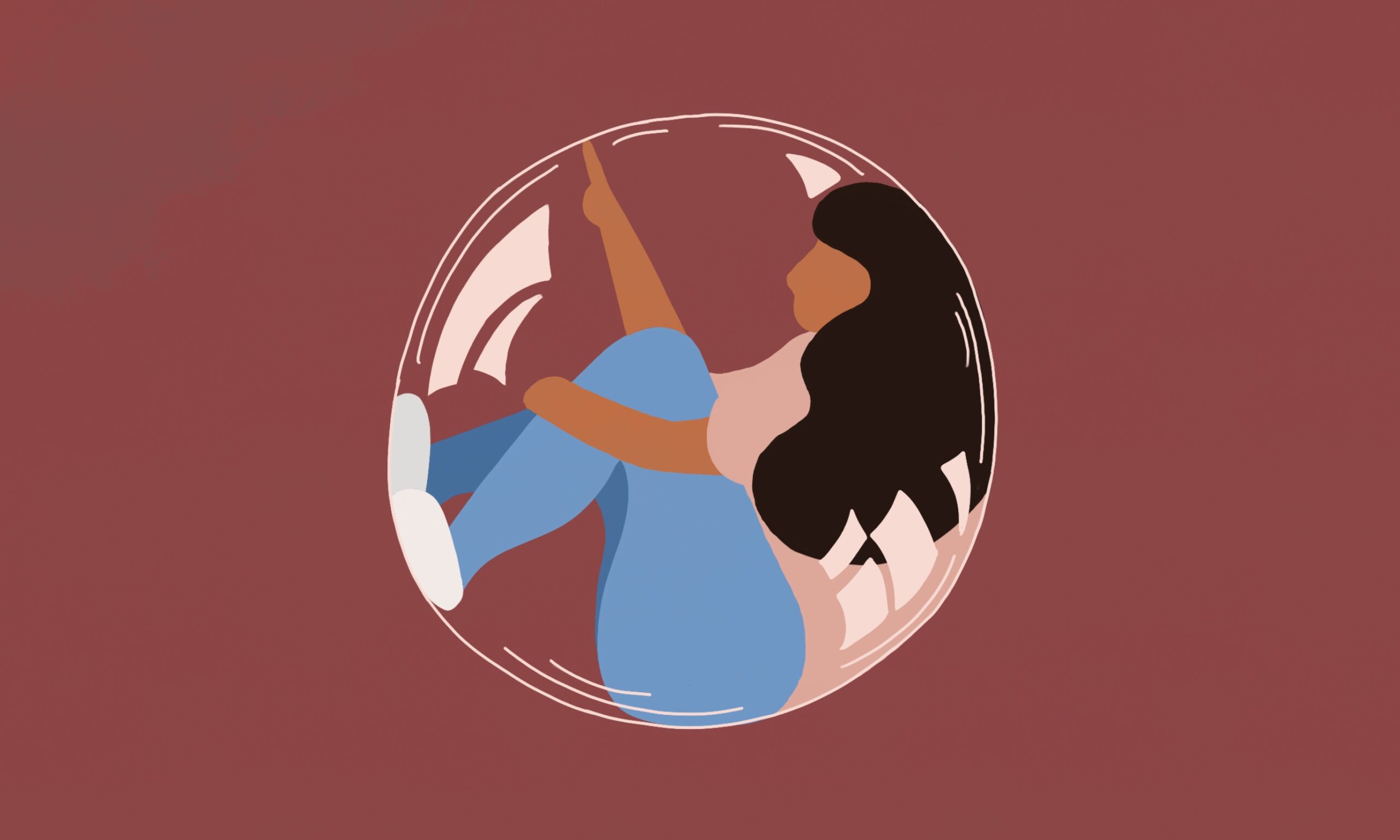Making my way up the endless Leavey steps en route to the Esplanade, I often notice the beautiful view looking back at me. I then proceed to beat myself up internally for not taking enough time out of my day to explore the beautiful city that is Washington D.C., thus falling prey to the “Georgetown Bubble.”
The Georgetown Bubble refers to the notorious reputation Georgetown students have for rarely venturing outside of campus. Stuck on a hilltop, Georgetown students often find themselves never stepping foot past M. Street, lacking the interest, the time, or the resources to explore the beautiful and exciting city. While the “Georgetown Bubble” is a broad and complex idea that cannot be confined to one experience, it is significant to add that this negative connotation of staying within Georgetown’s borders is a classist social pressure. Often myself and other members of the first-generation, low-income (FGLI) community choose to stay on campus as a result of financial and familiarity limitations, not because of a personal choice. Other students who can afford to Uber into the city whenever convenient or who have family members that attended Georgetown, and are thus familiar with the area, fail to realize the stark contrast between how the Bubble affects them versus their counterparts.
Socioeconomic status and family university background are significant elements that form one’s college experience. Examining the pivotal role class and familiarity can and do play in how one interacts with the Georgetown Bubble is central to the grander dialogue surrounding life in college for a FGLI student.
Before coming to the Hilltop, I vividly remember the nerves of moving away from home for the first time in my life. This move initially signified not only an escape from suburban life, but most importantly, a chance to see another part of the nation and experience a novel culture with the finances to do so. Growing up in a single-mother household, finance was always a stressful topic; I tried as hard as I could to lift the financial and familial strains off my mother. Having never in a million years thought that I would get to attend an elite private institution, the financial package offered made my dream a reality.
Upon reading my admission letter, previously latent, insecure thoughts rushed through my mind. How would I fit in with the majority of students there financially? Did they just accept me to fill a diversity quota? and many more. Not only did these questions fill my mind and time but they also heightened my uncertainty towards college as a whole. How would I be able to continue to support my family both financially and morally if I were 2,000 miles away? These familial and financial obligations severely weighed on me.
Upon arriving at the hilltop, I was overwhelmed with so many opportunities and a newfound inspiration to join clubs, visit new museums, and overall take advantage of all the amazing resources presented to me. I quickly discovered this enthusiasm would be cut short. Having no one to guide me through the Georgetown college process and lengthy club applications, I often felt a step behind my peers. Adjusting to a new time zone and coast, living on my own for the first time ever, and facing the academic as well as social pressures that come from being a freshman in a college like Georgetown, I had a lot of learning to do. I no longer could rely on my mom to help keep me from dying my clothes pink in the washer, or on historical familiarity to help me navigate finding the best food spots and threading places. Academically, I didn’t want to give myself a break or slack off. The insane amount of self-inflicted pressure to fulfill the successful fantasy I had for myself weighed me down.
I hated comparing myself to others, but often found myself asking if I would have had a less stressful experience had I had the financial means to pay for expensive tutors or impressive college prep programs. How would I leave campus and venture out into the city if I had no sense of direction and what seemed like a mountain of obligations? Even though I wanted to explore D.C., a part of me knew that I had to get a job to finance my foodie leanings, support my family back home, and keep up with the expensive lifestyle around me every day.
My classmates would walk around with thousand-dollar winter coats, wear designer bags, and avoid Leo’s at their every convenience. Meanwhile, I added three jobs to my plate and was juggling more than I could handle. Going from classes in Walsh to shifts in Reynolds (a hike), I often found it near impossible to ever leave the Bubble or even to discover any clubs I was passionate about. Despite it being a year, I still have yet to visit the Trader Joes on Wisconsin—yes, I know it’s pathetic. Trying to balance a social life on top of the three jobs and my coursework also proved to be extremely difficult, as I went from a 3 p.m. darty to clocking in at work at 4. I never saw any options to quit or lessen my burden, regardless of advice from friends and family—I knew I needed the money and I couldn’t quit (literally and figuratively).
Throughout the school year, I was juggling family issues, work commitments, and schoolwork, and regardless of how hard I tried, I was a victim to the Bubble. Despite this truth, this story isn’t a lost cause or meant to prompt empathy. Rather, I feel the need to address the bigger question as to why the Bubble for me is different from the Bubble for a student who has the luxury of taking the time to leave campus.
Whenever possible, I head outside of Georgetown and try my best to visit new places without breaking the bank. Always conscious of my limitations and my unfamiliarity with the area, I steadfastly try to prioritize using my time as my own. Being handed the golden ticket to an improved life as I saw it when I received my admission, I recognized that I would have a lot of catching up to do with the rest of my class. Being able to successfully challenge the Bubble at times has transformed my perspective on it as a whole. Although I still view the Bubble as a subjective and elitist symbol, my small feats outside of it have inspired me to strive to know more about my community outside of just Georgetown. I have traveled outside visiting cities like Chinatown, frequenting popular restaurants and cafes, and—as often as possible—exploring museums, visiting the weekly DuPoint Farmers’ market, and much more. I am pushed to pursue a wider experience and really get to know the city I now call home and its people whenever possible. Ultimately, the ability of FGLI students to “pop” the bubble when possible is indicative of our initiative and drive as people. Resilience facilitated our ability to persist despite the barriers preventing our escape from the Bubble and our ability to navigate past those limitations.
Breaking socioeconomic class divisions, club exclusions, and many other barriers are just some of the realities for all first-generation, low-income students. Even though I can’t run away from these obstacles, I do my best to jump over them whether it be a night out with my girls to a new restaurant or a quick trip to the National Mall. The Bubble cannot be confined to one definition as its intensity is different from individual to individual, largely because of the myriad backgrounds people come from. Essentially, the bigger question that must be asked should not be “is the Bubble real?” Instead: “How real is it, and for whom?”
Image Credit: Insha Momin





Thank you, Sonia for and articulating and sharing your spot on observation about the G’town Bubble and you managed to burst it!